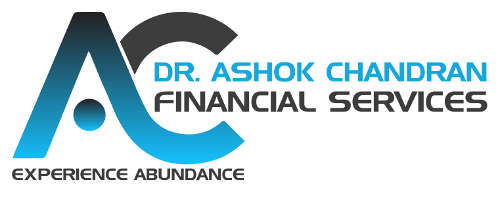Friday, January 3 2025
Source/Contribution by : NJ Publications
Do-It-Yourself (DIY) investing has gained significant popularity in recent years, with more and more individuals taking control of their financial future. While it can be empowering to manage your own investments, it's essential to weigh the risks and rewards carefully.
The Appeal of DIY Investing
-
Control: You have complete control over your investment decisions.
-
Potential for Higher Returns: With active management, DIY investors can potentially achieve higher returns by taking advantage of market inefficiencies or undervalued assets.
-
Lower Costs: DIY investing eliminates management fees and commissions typically charged by financial advisors.
-
Learning Opportunity: DIY investing can be a great way to learn about financial markets, investment strategies, and personal finance, helping individuals become more financially literate.
The Risks of DIY Investing
Before embarking on your DIY investing journey, consider the following factors:
-
Time Commitment: Successful investing requires significant time and effort to research, analyze, and monitor investments. Do you have the time and energy to dedicate to research and analysis?
-
Emotional Decision-Making: Emotional biases can cloud judgment, leading to impulsive decisions. Can you remain calm and rational during market fluctuations?
-
Financial Knowledge: A solid understanding of financial concepts, market trends, and investment strategies is crucial. Do you possess the necessary financial knowledge and skills to make informed decisions?
-
Diversification Risks: Without a well-thought-out strategy, DIY investors might inadvertently concentrate their portfolios, increasing risk. Can you diversify your portfolio without expert advice?
-
Regulatory Knowledge: Navigating investment regulations and tax implications can be complex, and DIY investors may overlook important compliance issues.
-
Opportunity Cost: Time spent on DIY investing might be better spent on other endeavors, such as career advancement or personal interests.
If you're unsure about your ability to manage your investments effectively, consider seeking professional advice from a financial advisor.
Role of Financial Advisor
A Financial advisor plays a pivotal role in the investment journey of an individual. They act as a bridge between the investor and the investment products, guiding and assisting investors in making informed decisions.
Here are the key roles and responsibilities of an advisor:
-
Need Identification of investor
Every investor has unique financial needs. Advisors assess an investor's current financial situation—such as income, expenses, assets, and liabilities—to gain insight into their overall financial health. They assist investors in clarifying their financial objectives, whether related to retirement, education, buying a home, or other significant life events. Once these needs are identified, advisors help prioritize them and estimate the necessary investment amounts.
-
Ascertain right Asset Allocation
Advisors tailor investment strategies to each investor’s unique needs. By assessing an investor's risk tolerance, financial needs, and time horizon, advisors can construct a diversified portfolio that balances risk and reward. This involves carefully allocating assets across various asset classes, such as mutual funds, stocks, bonds, etc. to optimize returns while minimizing risk.
-
Hand hold investors in volatility, so that they don’t diverge from their Asset Allocation
The financial market can feel like a roller coaster, with unpredictable ups and downs. In times of economic turbulence, emotions like fear and greed can cloud investors' judgment. Navigating market fluctuations can be challenging without guidance. Financial advisors help investors transform market chaos into opportunities for long-term growth. During volatile periods, a rational advisor serves as an anchor, ensuring that clients stay focused on their financial objectives.
-
Maintaining Detailed Records and Adhering to Regulations
Advisors meticulously maintain detailed records of all client interactions, transactions, and investment decisions. This ensures transparency, accountability, and compliance with industry regulations. By adhering to strict regulatory guidelines, advisors protect the interests of their clients and maintain the highest standards of professional conduct.
-
Beyond Short-Term Performance
While past performance can be a useful indicator, it's crucial to remember that past performance is not indicative of future results. Focusing solely on short-term fluctuations can distract investors from their long-term objectives. A more sustainable approach is to adopt a long-term perspective and prioritize a well-diversified portfolio that aligns with your risk tolerance and financial objectives.
-
Portfolio Review and Rebalancing
Market conditions are constantly evolving, and it's essential to regularly review and rebalance your investment portfolio. Advisors play a crucial role in monitoring market trends, assessing portfolio performance, and making necessary adjustments to ensure that your investments remain aligned with your financial needs. Investors stay informed from regular reports and insights from advisors amidst market shifts.
Final Words
Ultimately, the decision to pursue DIY investing is a personal one. It's important to weigh the potential benefits and risks carefully and choose the approach that best aligns with your financial needs and risk tolerance.






